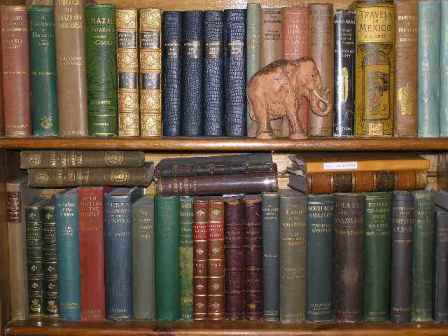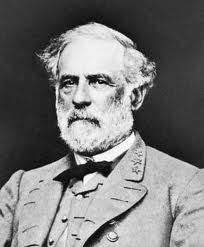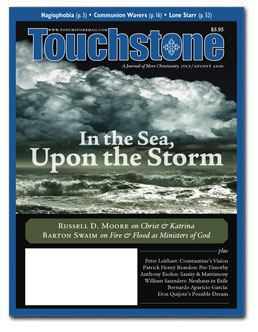
The Great Books?

Patrick Deneen has a good read over at Front Porch Republic on the nature of the project of reading the "Great Books". I won't spoil the read, but he makes the observation that while reading the Great Books of the western canon is a good thing, there must be some impetus for reading the Great Books beside simply reading the Great Books. In other words, there must be some sort of anthropology and idea (or theology) of history which can serve as an impetus for reading the Great Books. This is the kind of thing I was getting at in my book, The Gospel and the Mind: Recovering and Shaping the Intellectual Life. Years ago, Frederick Wilhemsen made some similar observations in his Modern Age article, "The Great Books: Enemies of Wisdom" (in the Summer/Fall 1987 issue). For the essay click here. Wilhemsen's point (correct in my view) was that a Great Books program can be a good thing, but one must never forget the goal or telos of education: wisdom. One reads the Great Books as part of an overarching goal of becoming a wise person. Without the goal of wisdom, Great Books programs risk forming persons who are simply able to drop a name, or summarize a concept, but are not wise or virtuous. These persons are simply unwise and foolish name-droppers, not wise persons.
- Details
- Category: Recommended Reading Recommended Reading
- Published: 23 April 2012 23 April 2012
- Hits: 4485 4485
Virginia Decides to Leave the Union

151 years ago, on April 15, Virginia decided to leave the Union. Here is a link to a good and informative piece which summarizes the history. In short, Virginia's legislature had wrestled with the issue. When Lincoln called for 75,000 troops to suppress those states who had seceded, and Virginia was called to contribute men to the cause, Virginia chose to leave the Union as well, and--honorably--to stand for her own constitutional liberty. The picture above is of Don Livingston's new (edited) book, Rethinking the American Union for the Twenty-First Century. Thanks for the story Doug!
- Details
- Category: Recommended Reading Recommended Reading
- Published: 18 April 2012 18 April 2012
- Hits: 4174 4174
D.A. Carson and the God Who Reigns

D.A. Carson published his book, The God Who Is There a couple of years ago. You can listen to the entire corresponding set of lectures here. The video summarizing lecture 5, "The God Who Reigns," can be accessed here.
- Details
- Category: Recommended Reading Recommended Reading
- Published: 02 April 2012 02 April 2012
- Hits: 4283 4283
Rethinking the American Union for the Twenty-First Century

It is a pleasure to recommend a new book edited by Donald Livingston. The book is titled Rethinking the American Union for the Twenty-First Century (Pelican Publishing Company, 2012). The book consists of seven essays, plus an Introduction written by Livingston. The book springs out of a conference held by the Abbeville Institute in 2010.
If there is an overarching thesis of the book, it may be found in the following words from Livingston, in his introduction. The essays in the book are “efforts to rethink the philosophical, political, moral, and constitutional assumptions that have led us to think that size and scale do not matter in political things and that have produced a regime suffering from elephantitis, with little understanding of its condition and even less inclination to seek such understanding” (p. 23).
Here are the chapter titles:
Introduction: “The Old Assumptions No Longer Apply” (Donald Livingston)
Chapter 1: “Secession: A Constitutional Remedy that Protects Fundamental Liberties” (Kent Masterson Brown)
Chapter 2: “The Founding Fathers of Constitutional Subversion” (Thomas DiLorenzo)
Chapter 3: “The Tenth Amendment Awakening, the Supreme Court Be Damned (Marshall DeRosa)
Chapter 4: “American Republicanism and the Forgotten Question of Size” (Donald Livingston)
Chapter 5: “’To the Size of States There is a Limit’: Measurements for the Success of a State” (Kirkpatrick Sale)
Chapter 6: “Too Big to Fail? Lessons from the Demise of the Soviet Union” (Yuri Maltsev)
Chapter 7: “Most Likely to Secede: U.S. Empire and the Emerging Vermont Independence Effort” (Rob Williams)
I pretty much read anything from Livingston I can get my hands on. His chapter (on the question of the size of political units, or the question of the economy of scale) is an excellent way to begin to work through intellectually the question of political order, and when one might begin to say, “It’s simply too big!” And Maltsev’s chapter on the break-up of the Soviet Union is simply a joy to read.
These essays are an excellent introduction to thinking through fundamental questions of political order.
- Details
- Category: Recommended Reading Recommended Reading
- Published: 18 February 2012 18 February 2012
- Hits: 5470 5470
Arator is a new journal exploring the southern intellectual tradition

For those interested in the southern tradition, you might want to check out the new online journal, Arator: A Journal of Southern History, Thought, and Culture. It is edited by the very capable John DeVanny, Jr. It is published annually, and features various essays, book reviews, and poetry. Essays cover a variety of themes, from the political thought of Thomas Jefferson, to David Hume and the question of economy of scale, to the thought of John Taylor of Caroline. Enjoy!
- Details
- Category: Recommended Reading Recommended Reading
- Published: 18 February 2012 18 February 2012
- Hits: 4931 4931
Baylor University and the Possibility of Christian Higher Education

For folks who may be interested, I am "refreshing" a web site entry I made back in 2010.
__________________________________________________________________________________
This Thursday, September 17 [i.e., 2010], Ken Starr will be inaugurated as Baylor University's fourteenth president. He is a talented and gifted man, and he inherits a big job. In a recent issue of Touchstone magazine, I wrote an essay about Baylor, Ken Starr, and the challenges facing any new president of Baylor University. In 2002, when Robert Sloan was president, Baylor launched "Baylor 2012"--a ten year strategic plan by which Baylor hoped to enter into the top tier of American universities while strengthening--not diluting--its Christian commitment and character. Whether it is doing this is a good question indeed. It certainly contains one of the finest collection of Christian scholars anywhere in the world. To read my Touchstone essay you can open the attachment below. Touchstone magazine is on my "always read" list. I recommend it highly.
- Details
- Category: Recommended Reading Recommended Reading
- Published: 16 February 2012 16 February 2012
- Hits: 4684 4684